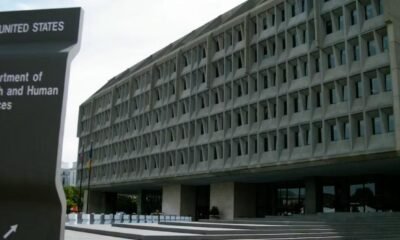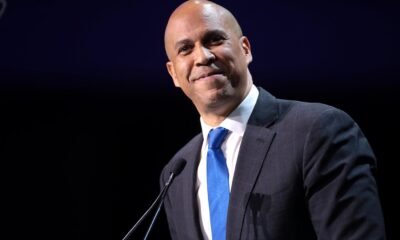cct-tracking
El Salvador’s Bukele Declares No Release for Kilmar Abrego Garcia to the U.S.

In a significant legal development, the U.S. Supreme Court has directed the Trump administration to facilitate the return of Kilmar Abrego Garcia, a Maryland resident wrongfully deported to El Salvador last month. This ruling has raised complex issues between U.S. officials and El Salvador’s President Nayib Bukele, who publicly dismissed the possibility of returning Abrego Garcia as “preposterous.”
Despite the Supreme Court’s decision, Trump administration officials reaffirmed that Garcia, a citizen of El Salvador, would be subject to the country’s laws. Bukele, a pivotal ally in U.S. deportation efforts, staunchly opposed any suggestion of returning Abrego Garcia to U.S. soil. “How can I smuggle a terrorist into the United States?” he queried during a joint press briefing with Trump.
Garcia was deported to a notorious prison where gang affiliates are housed. U.S. Attorney General Pam Bondi indicated that while the U.S. could provide a flight for Garcia’s return if El Salvador allowed it, the ultimate decision lies with the Salvadoran government. She noted that Garcia’s illegal status in the U.S. complicates his repatriation.
The situation has prompted an intense legal battle concerning Garcia’s fate, as numerous court filings reveal a lack of transparency from the government regarding its plans. Judge Paula Xinis is contemplating a request from Garcia’s attorneys to compel the government to clarify its actions.
El Salvador’s pivotal role in U.S. deportation policies cannot be overstated. Since March, the country has welcomed over 200 Venezuelan immigrants accused of gang-related crimes, placing them in a maximum-security facility under Bukele’s extensive crackdown on violence. Trump has expressed admiration for Bukele’s leadership, highlighting the Salvadoran president’s effectiveness in reducing crime rates.
However, this cooperative approach has sparked concern among U.S. politicians. Maryland Senator Chris Van Hollen is advocating for a meeting with Bukele to discuss Garcia’s return, while New Hampshire Senator Jeanne Shaheen criticized the government’s disregard for due process, asserting that it undermines national safety.
The Supreme Court’s decision comes amidst Trump’s assertion that he respects the justices’ rulings, but his administration’s stance remains adamant, emphasizing Garcia’s citizenship status. Critics note that ongoing legal battles expose systemic flaws in how deportation cases are handled.
Trump has suggested expanding the deportation framework to include U.S. citizens convicted of violent crimes, a contentious proposal that underlines the complex intersections of law and immigration policy. In a recent meeting, he repeated this view, highlighting the need for greater security and cooperation with Bukele.
As the political landscape evolves, the implications of these decisions ripple through both nations, impacting perceptions of justice and law enforcement. Bukele’s popularity—a product of his hardline approach—stands in contrast to criticisms regarding civil liberties in El Salvador, which are currently restrained due to ongoing states of emergency.
While Bukele and Trump maintain a straightforward relationship on immigration, the Biden administration’s more critical stance on Bukele’s policies has added layers of complexity to their diplomatic interactions. Ultimately, the future of Kilmar Abrego Garcia remains uncertain, caught in the contentious dynamics of immigration, nationality, and bilateral relations.
Alemán contributed from San Salvador, with reporting from AP writers in Washington and West Palm Beach.


















